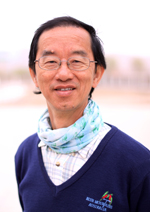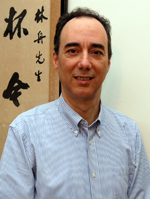Exemplary Teaching Award in General Education 2013
Time: 3:30-4:45pm
Venue: Foyer Gallery, Sir Run Run Shaw Hall, CUHK
In 2013, ten teachers were nominated for the Award and the Exemplary Teaching Awards in General Education go to Prof. Joseph Bosco of Department of Anthropology and Prof. Lam Chiu Ying of Department of Geography & Resource Management.
Prof. Lam Chiu Ying

-
Adjunct Professor, Department of Geography and Resource Management, CUHK
-
Chairman, HKSAR Environmental Campaign Committee
-
Chairman, Hong Kong Countryside Foundation
-
Honorary President, Hong Kong Bird Watching Society
- Ex-Director, Hong Kong Observatory
Prof. Lam is a long-time fervent bird-watcher and after retirement, has turned into an active speaker. Starting with climate change, he promotes love of and respect for Nature as well as simple life-styles to a wide audience. Prof. Lam has been offering a general education course ‘UGEB2114 Climate, Energy and Life’ at CUHK since 2010. His publications include: Thoughts on Wing (in Chinese,《飛羽神思》), Birds of Hong Kong and South China (in Chinese,《香港及華南鳥類》)(co-author), Director’s Blog (in Chinese,《台長網誌》)(co-author), Where for Peace in the Changing World (in Chinese,《天地變何處安心》).

I come to teach at the Chinese University with a hidden agenda. I hope to urge as many students as possible to resolve to be a good man/woman in the rest of their life. I am determined to exert my utmost to give students good education useful to their transition from adolescence to adulthood.
I see students as “intelligent machines” waiting to be switched on. I believe that they would be switched on if:
- their curiosity is re-ignited,
- they discover the beauty in the inter-connection among things they encounter,
- they find out that they can acquire knowledge through their own effort,
- they realize that what they learn in class is immediately relevant to what is happening around them everyday,
- they realize that what they learn in class has a global dimension which is also relevant to their life.

I advocate that learning should be fun, should not be just about knowledge, but should also be about developing generic skills, attitudes and in particular righteous values.
I think that as teacher I should come close to the students, to let them know that I care about them, not just as students but also as human beings. I firmly believe in the human touch as the key to motivating the students. For example, I always say “good morning” to all students coming into the classroom even those who are late.
I consider it important that all university students should develop a world-view informed by basic science, geography and history, which carry both the senses of both time and space, in great depth and wide span. This world-view I endeavour to help students built it up themselves.
I feel that as a university teacher, I have the responsibility to help students realize that, armed with the knowledge and intelligence they acquire from university, they have the potential to do either great good or great harm to human society. I further consider that a university teacher has the responsibility of instilling in the young mind of students the determination to do good and not to do harm to people and the world.

Guided by these thoughts, I always go to classes with a smile and:
- let students bring up news reports of current interest, which I would then turn into a demonstration of the connection between course contents and current affairs, often involving unexpected intellectual acrobats surprising to students,
- prompt students with questions which they could collectively answer, and reward them whenever they participate actively,
- walk among students during the class,
- let ample humour come into the talking I do in class,
- as the opportunity arises, drift into side-tracks of immediate interest to students so as to hold their attention throughout the class.

Guided by the same thoughts, I design the course specifically to show the inter-connection among Climate, Energy and Life, three components which most students would not realize are related. Indeed, there is a 4th component viz. information. It is incorporated into the course material too, but is not explicitly included in the formal course title, in order to keep it short.
The choice of course material reflects my specific wish to show students among other things:
- how the human condition has evolved in relation to natural climate change and attendant ecological changes,
- that the inclination to do good to the community is not an accident but a necessary condition for human survival so far,
- how civilization especially urban life has led to deviations from the natural human condition and eventually to a changed physical world unfavourable to human existence.

I truly hope that students attending the course would be caused to reflect on what the human species has done to create the mess it is now in, what the species should do in order to ensure its own perpetuation and what they themselves as individuals should do in order to contribute to the collective welfare of fellow human beings.
If I manage to reduce the number of highly educated evils coming out of the university, that would be the greatest reward to me.
Prof. Joseph Bosco

I want them to be able to see things from a different culture’s perspective, and to see beyond their naturally ethnocentric perspective."
Prof. Joseph Bosco obtained his BS in Biology from the University of Notre Dame and MA, MPhil and PhD degrees from Columbia University in the City of New York. He has been teaching in the Department of Anthropology since 1992. He has taught four General Education courses over the years: UGEC2662 Culture and Business, UGEA2180 Chinese Culture and Society, UGEC1681 Humans and Culture, and the popular course UGEC2960 Magic, Myth and the Supernatural.

I am honored to receive the Exemplary Teaching Award in General Education. There are many good teachers in this university, so it is a special honor to be singled out.
My teaching philosophy is captured by the owl, which is the symbol of the Office of University General Education. In the West, the owl is associated with Athena, the goddess of knowledge and wisdom. Owls look smart, with eyes on the front of their head like humans; many species appear to be wearing glasses. The owl embodies my goal as a teacher, which is to help students develop wisdom. A university education is not vocational training; we are preparing students not only for their first job, but for a life of learning in a rapidly changing world.

One of my primary objectives as an anthropologist is to help students see how culture shapes our view of the world. I want them to be able to see things from a different culture’s perspective, and to see beyond their naturally ethnocentric perspective. I do not seek to change students’ values, but to make them aware of their values. If they recognize the range of possible values that exist across cultures, they can understand other people and communicate better in this increasingly interconnected and diverse world.
My role as a teacher is to coach, encourage, and inspire students to learn. I am not primarily there to impart knowledge—that can be done more efficiently by a book or a video. The two hours of lecture are too short for direct knowledge transfer, and the lecture format can be very boring for students, so it is not effective in helping students see the world in new ways. I try to use valuable class time to explore ideas and deepen students’ understanding of the material, rather than just imparting information.

But the owl is not only a symbol of wisdom; it is nocturnal and has large eyes, so is believed to see things that are hidden or secret. It is associated with omens, clairvoyance, and intuition. It could be the mascot for “Magic, Myth and the Supernatural,” the course I created to take advantage of students’ curiosity about magic to focus on the cultural creation of reality. Many things in life are culturally real even if they are not physically real. For example, the class explores the cultural definition of ghosts. Chinese ghosts are said to lack feet, while American ghosts are mere shadows, or may not be visible at all, but can make unexplained noises and move furniture. While many people think Asian cultures are more “superstitious,” we find that there many supernatural phenomena in the West (e.g. UFOs, alien abductions, good luck charms, and even much stock picking advice), so magical thinking is not “backward” or “old-fashioned” but part of the human condition. This course allows us to see how important culture is in defining our sense of reality. The course also allows students to learn how to discuss strongly held beliefs in a respectful manner.
I am continuously improving and adapting my courses. I have experimented with weekly quizzes and class simulations. I divide my class into 20 minute segments, with lectures broken up by discussions or a video clip. I learned early on in my teaching that most people cannot pay attention for a full 45 minute lecture. This is especially true for our current generation of students who grew up with many choices of media, and who will pull out their smartphone and check Facebook if the class gets boring.
The world is complex. Theories are only partial explanations, and many theories seem to contradict each other. Owls also symbolize this complexity and contradiction. Owls can symbolize ancient wisdom and intuition, but also hidden knowledge, secrets and omens, and even, when associated with their eerie hoot, death and misfortune. Students need to learn to reconcile conflicting theories, and balance opposing points of view. Finding that balance, that golden mean, or 中庸 “Zhongyong“, takes wisdom. My goal is to give students tools and to support them in the first few steps on what will be a lifelong journey of learning, a journey that hopefully will help them approach the owl’s wisdom.


